
Person Warns Their Boss That The Company Policy Is Annoying To Clients, Boss Refuses To Listen And The Branch Ends Up Getting Closed
Interview With AuthorA company’s policy on how to treat clients isn’t always the best approach. It sometimes takes an outsider’s opinion for some of the higher-ups to finally realize one simple thing—they’ve been doing things a bit wrong. Or, in some cases, so wrong that they’ve entirely wrecked their relationships with other major businesses in the area and have to close their local branch.
Redditor u/EddekFZ shared an interesting tale about his old job with the members of the r/MaliciousCompliance online community. He explained how his boss wanted him to make weekly calls to current and potential clients in order to “build positive relations” with them. Things quickly turned sour. Scroll down for the full story!
Bored Panda reached out to u/EddekFZ, and he was kind enough to answer our questions. He shared his thoughts on what makes for a good boss, and why some managers don’t want to listen to their employees. You’ll find our full interview with the OP below.
Some bosses think that their ideas are golden and they’re not willing to listen to good advice from their employees
Image credits: Yan Krukau (not the actual photo)
One worker shared a story about how his former boss’ approach to maintaining clients backfired massively
Image credits: Andrea Piacquadio (not the actual photo)
The employee followed the regional manager’s demands to the letter, and the clients were far from happy
Image credits: Nicola Barts (not the actual photo)
The situation deteriorated pretty quickly and there were some red flags about the future of the branch
Image credits: EddekFZ
“It was great work experience for me at the time”
We were curious about what inspired the redditor to share the old work story online. “It was great work experience for me at the time. Now, 10 years down the line I think it’s funny, as comedy = tragedy x time,” u/EddekFZ. He believes that so many internet users enjoyed the story because, at some point, they likely had a boss who did really weird stuff. And it’s extremely relatable for them.
Bored Panda wanted to know more about the dynamics between employees and their managers. “I now have about 17 years of experience in various work environments, being a mid-level manager in my company,” the OP opened up to us.
“Sometimes, you just have to go with what the boss above you wants, due to company policy or just because the higher-ups tell them to. You either comply or face the consequences,” he said.
“Sometimes, it’s easier to comply and wait for it either to blow up or for everyone to accept it. As a boss myself I, too, sometimes make stupid or pointless requests of my team because my boss wants something done a certain way.”
The redditor believes that the regional manager from the story, his former boss, might have been in a similar situation and “just didn’t want to justify it to me for whatever reason.”
According to u/EddekFZ, “a good boss leads by example and balances their own targets with the team’s personal goals.” Meanwhile, “a bad boss demands results without regard for the process.”
It’s essential to know what kind of approach works best with each client
Image credits: Karolina Grabowska (not the actual photo)
Now, the OP had a hunch that things were going to backfire if they were going to bother everyone with calls so frequently. But that’s what his boss wanted, so he decided to maliciously comply. And that’s exactly what the redditor did: every single week, he would ring up all of their current and potential clients, without exception.
Soon enough, the vast majority of them were blocking and dodging his calls. Some of them even cursed at him. This, in turn, meant that this particular company branch wasn’t selling much of anything. And quickly enough, the branch got shut down.
Working in sales means that you’ve got to find the right balance between knowing when to offer your products and services and knowing when to back off. The more experience you have, the easier it is to get ‘into the flow’ of things. For instance, you might know a particular client of yours really enjoys chatting with you. So, naturally, you might call them more frequently, spend some time on small talk, and ask them how they’re doing.
On the flip side, you’ll also have clients who are all about business. They value their time a lot more than random conversations, so they don’t like unnecessary calls. They best way to get on their nerves is to ignore their boundaries. If you keep doing that, the entire business relationship is likely to suffer.
In short, you need to adapt your approach to every single client in order to build the best possible relationships with them. However, if you approach everything with a one-size-fits-all approach like the OP’s regional manager insisted on doing, you’ll end up with lots of angry people and tons of lost revenue. What might sound fine on paper (calling everyone once a week and logging in all of the details) might not work in practice after all (clients ignoring your employees because they’re annoying).
Bosses shouldn’t be afraid of maintaining open lines of communication with their subordinates
Image credits: Canva Studio (not the actual photo)
It takes a lot of guts to tell your boss that they might be wrong. One of the signs of a good boss is that they’ll consider criticism without immediately dismissing it or getting overly defensive. Someone else’s perspective can help avoid some pitfalls in the company’s future. Meanwhile, a bad boss will go on ahead with their ideas without even discussing them because, hey, they’re the boss and that means their word is final. Nobody’s perfect and sooner or later they’ll end up making a mistake and regretting not considering some alternative approaches.
Good and constant communication, then, is the cornerstone of a healthy relationship between a manager and their subordinates. Bosses need to proactively loop their workers into important discussions. Meanwhile, the employees themselves have a responsibility to speak up about important issues or potential problems.
It’s easy to grumble, mumble, and gossip about how bad things are, but it takes real courage to take actionable steps toward solving those problems. No boss is a mind reader and they need to hear about things from you directly. Sit down with them and have a friendly but frank conversation. Be the voice or reason. Propose potential solutions. Explain your reasoning. And try to find a compromise.
The more you know about your boss, the more you can steer the whole discussion in the right direction. Try to avoid mentioning topics that you know are bound to get them angry or defensive. Add a bit of humor and positivity to create a more relaxed atmosphere. And, above everything, be a good listener. It’s easy to forget that your superiors are living, breathing human beings, too! They’re most likely under a ton of stress. You need to try and understand their approach without letting them walk all over you. Who knows, in the end, you might end up indirectly saving the branch office!
Some readers shared similar work experiences with bad bosses while others revealed their candid thoughts on poor management
I worked for an online "university" that did this to students. As an "academic advisor" I called students once a month to check in, make sure they were logging on to their class, and finally to try and get them to take more classes. The students all hated it and my experience was very similar to this story. I constantly pushed back but management stood firm. I quit. Got a job at a real university and last I heard that fake university was still harassing students with these stupid, inane phone calls.
I get the annoying academic advisor calls, texts, and emails monthly. I just ignore all of them. I do set up an appointment with her when I need her though.
Load More Replies...Is there a universal school or class that managers attended? Ya know on how to be a complete a*****e moron 🙄. Who are the morons who come up with these ridiculous company policies? Do any of them have any practical or real experience in the real world? So many businesses go under because of their idiotic power trips. Just can't fix STUPID!
Yeah, higher management usually studies management. I took some management classes in university and most of the stuff was so outdated it was borderline ridiculous. I mean who in their right mind would still listen to business advice from the 1950s? The rest was often conjured from the minds of people who never even managed real people. The very few new management models that even sounded somewhat useful came from Japan. I'm talking about agile management and kanban. So yes indeed, they do litterally go to the same universal management classes and most of them are ducking stupid.
Load More Replies...What awful advice. Call me once a week and you'll p**s me off so much I'll deliberately boycott your product.
I worked for an online "university" that did this to students. As an "academic advisor" I called students once a month to check in, make sure they were logging on to their class, and finally to try and get them to take more classes. The students all hated it and my experience was very similar to this story. I constantly pushed back but management stood firm. I quit. Got a job at a real university and last I heard that fake university was still harassing students with these stupid, inane phone calls.
I get the annoying academic advisor calls, texts, and emails monthly. I just ignore all of them. I do set up an appointment with her when I need her though.
Load More Replies...Is there a universal school or class that managers attended? Ya know on how to be a complete a*****e moron 🙄. Who are the morons who come up with these ridiculous company policies? Do any of them have any practical or real experience in the real world? So many businesses go under because of their idiotic power trips. Just can't fix STUPID!
Yeah, higher management usually studies management. I took some management classes in university and most of the stuff was so outdated it was borderline ridiculous. I mean who in their right mind would still listen to business advice from the 1950s? The rest was often conjured from the minds of people who never even managed real people. The very few new management models that even sounded somewhat useful came from Japan. I'm talking about agile management and kanban. So yes indeed, they do litterally go to the same universal management classes and most of them are ducking stupid.
Load More Replies...What awful advice. Call me once a week and you'll p**s me off so much I'll deliberately boycott your product.

 Dark Mode
Dark Mode 

 No fees, cancel anytime
No fees, cancel anytime 








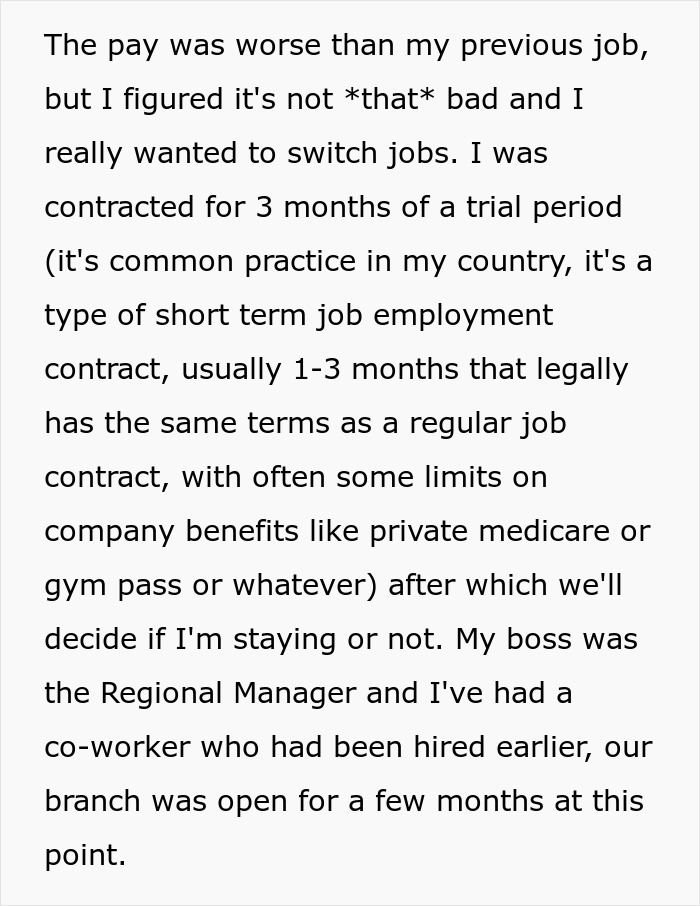

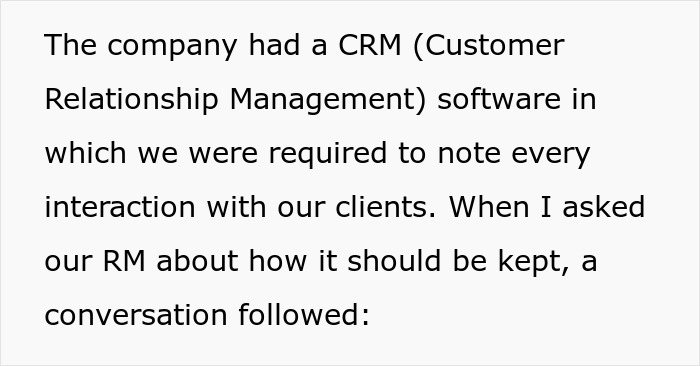
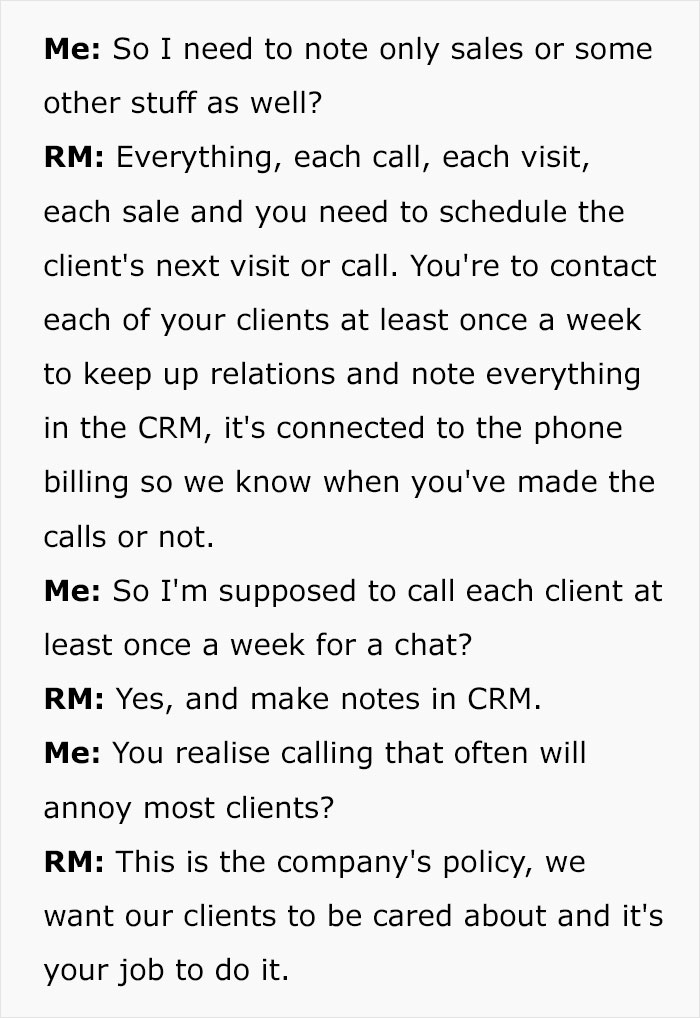

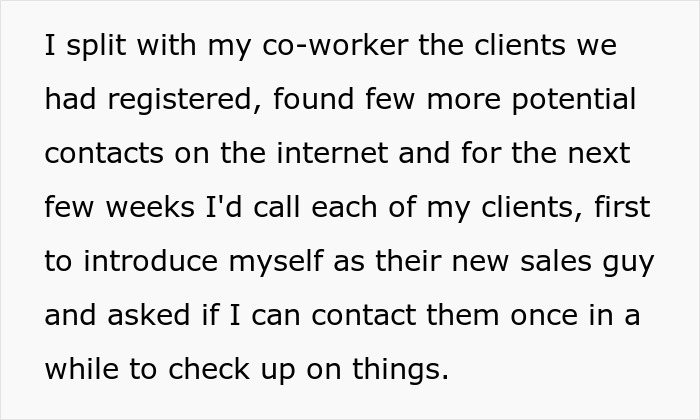


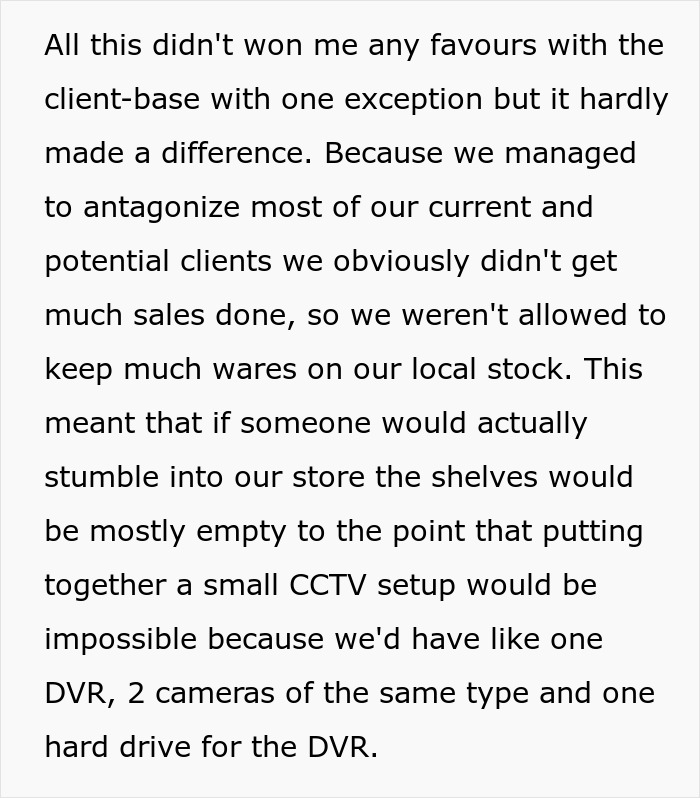
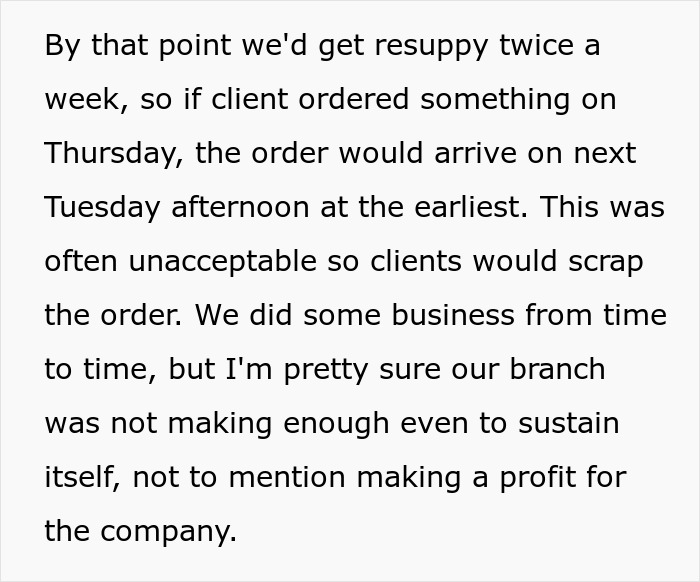










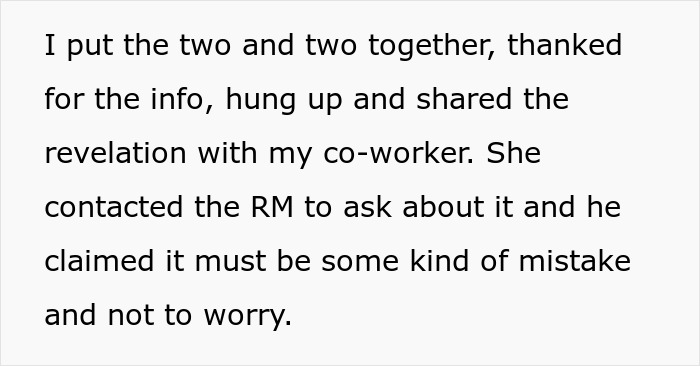


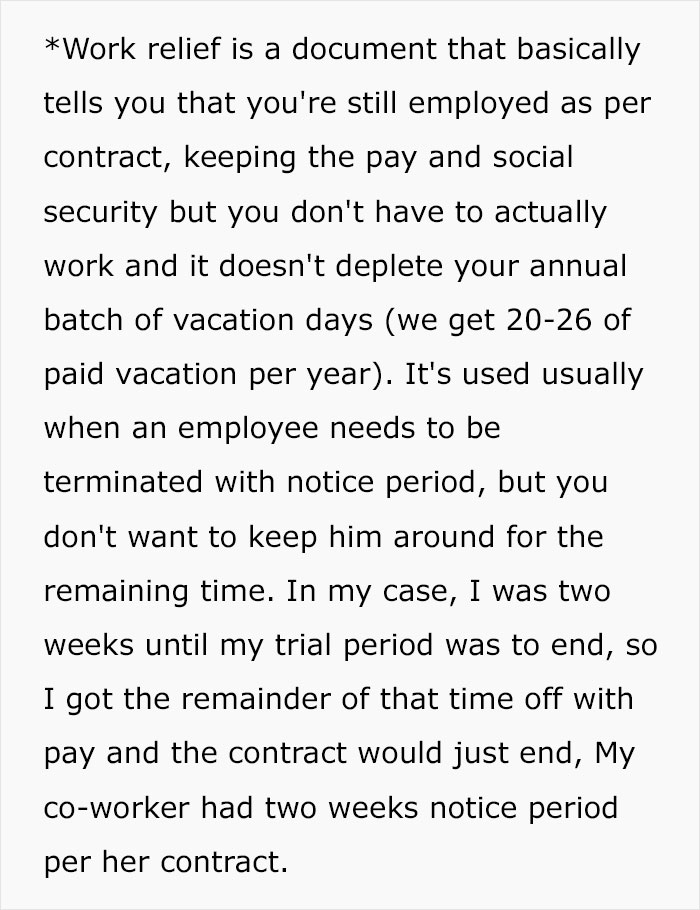























































40
11